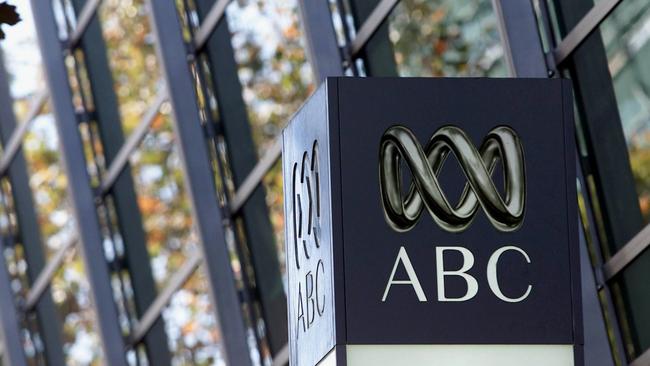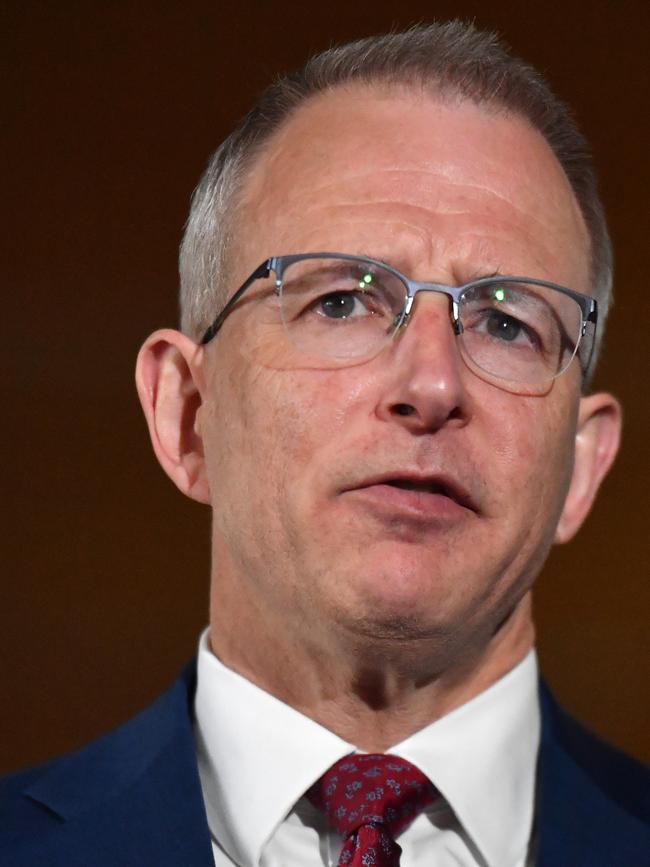ABC, SBS will not share in Google, Facebook media revenue, says Paul Fletcher
Detailing the code between big tech and media, Communications Minister Paul Fletcher confirmed the ABC and SBS will not share in the revenue.

Communications Minister Paul Fletcher said the sweeping new code the forces tech giants Google and Facebook to compensate Australia media outlets for the content they aggregate would force them to pay for Australian news about everything from COVID-19 to “cat videos”.
Mr Fletcher said Facebook and Google used their wildly popular platforms to aggregate content instead of producing their own, which allows them to make money through advertising revenue by sharing content produced and created by news outlets.
“What that content is doesn’t greatly matter as far as their business model is concerned – it could be a news story about COVID-19 or it could be a cat video,” he said.
“If it attracts eyeballs then it does what you want it to do.”
But because they are government funded and do not rely on advertising, the ABC and SBS could not be part of the framework, Mr Fletcher said.
The scale of the tech giants’ reach in Australia is extraordinary, with about 19 million Australians using Google each month and 17 million using Facebook.

The code, which Mr Fletcher described as a matter of “public interest”, meant commercial media organisations would be able to enter into negotiations with Google and Facebook to work out payment for news content.
Compulsory arbitration would be triggered if the companies failed to reach an agreement after three months of negotiations, with a panel of three arbitrators appointed by the Australian Communications and Media Authority to determine a fair price.
To be eligible, the news company must be assessed by ACMA and found to satisfy a list of criteria, including that the company earned revenue of $150,000 per year and operated “predominantly in Australia.”
Google and Facebook would be forced to pay 10 per cent of their annual Australian turnover in fines if they reneged on an agreement with a local news company.
Mr Fletcher said the ACCC had learned from Europe’s ambitious attempts to tame America’s tech giants with record penalties introduced over the past few years which were designed to break Google’s vice-like grip on the search market.
He said the ACCC had developed the code based on “what had been done in other countries”, with a particular focus on various attempts in Europe to regulate the world’s most powerful tech companies.
“The ACCC’s advice to us, Rod Sims’ advice to the government (is that) this is a model that would work and it will be backed by the force of law. There will be significant penalties for noncompliance.”
Mr Fletcher said the bargaining arrangements would not be available to the nation’s public broadcasters ABC and SBS because they were funded by the government and not through advertising revenue.
“The ABC and SBS are not in scope to benefit from remuneration aspects of the draft code,” he said. “The ABC and SBS are not the policy focus when it comes to remuneration aspects of the proposed mandatory code.”
Mr Fletcher said the code outlines requirements covering bargaining arrangements between the parties, minimum standards relating to the presentation of news, and a penalty regime.
Responding the announcement of the code, an ABC spokesman referred The Australian to the broadcaster’s June submission to the ACCC, which argued it should be part of any framework facilitating access to revenue arrangements.
“If the ACCC forms the view that there is value to third-party digital platforms in having news media content (including from the ABC) and establishes a mechanism for platforms to better share this value with news media organisations then the ABC should be part of this framework,” the ABC submission said.
“Any additional revenue accruing to the ABC as a result of the Code would be applied to the delivery of ABC Charter objectives. In this case, the ABC’s disposition would be to direct funds to further investment in public interest journalism at the local and regional level.







To join the conversation, please log in. Don't have an account? Register
Join the conversation, you are commenting as Logout